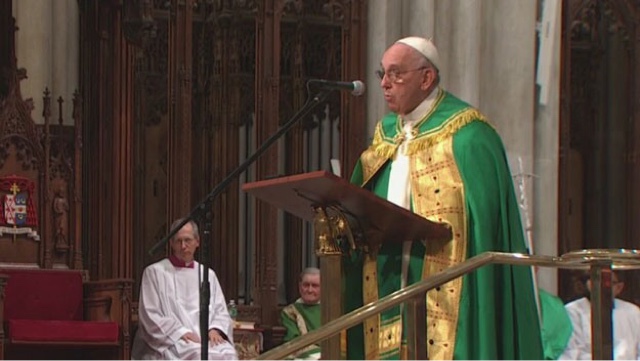O objetivo deste texto é mostrar a verdadeira face do socialismo através de evidências irrefutáveis contra esse sistema ideológico político. Uma vez que aprendamos o que realmente é o socialismo, iremos entender qual é a nossa responsabilidade perante Deus, a pátria e a família.
Para atingir esse objetivo fizemos dez perguntas essenciais que nos ajudarão a entender o que é o Socialismo.
Primeira pergunta: Onde apareceu o Socialismo?
O Socialismo surgiu entre os séculos XVIII e XIX, no contexto da Revolução Industrial, e se estabeleceu por meio das propostas de diferentes intelectuais, como Pierre Leroux, Robert Owen, Saint-Simon, Charles Fourier, entre outros. Esses primeiros pensadores ficaram conhecidos como membros do chamado socialismo utópico.
A primeira experiência prática do socialismo foi em Paris, sendo adotada no país somente no século XX, mas a primeira nação a adotar o socialismo foi a União Soviética, tendo Lenin e Josef Stalin como pais do socialismo soviético.
Segunda pergunta: Qual era objetivo do Socialismo?
O Socialismo é uma ideologia política, econômica e filosófica, que propõe a construção de uma sociedade mais justa e igualitária. O objetivo não era apenas acumular poder, mas uma missão sagrada de um mundo socialista.
Terceira pergunta: Como a União Soviética implantou o Socialismo?
O distinto autor Joshua Muravchik, membro do World Affairs Institute, faz uma abordagem histórica dos mitos do socialismo.
Ele escreve que o iniciador do terror, da tirania e da violência soviéticos, foi seu pai fundador, Vladimir Lenin, que exortou seus seguidores a exercer “terror em massa, impiedoso contra os kulaks, (camponeses de classe média que podiam contratar funcionários e que resistiram a Stalin, milhões foram presos, exilados ou mortos) contra os padres e revolucionários que lutaram na guerra civil. As pessoas de posição duvidosa deveriam ser trancadas em campos de concentração” (ou seja, o Gulag).
Quando os agricultores resistiram a coletivização, o sucessor de Lenin, Josef Stalin, projetou uma fome, na qual pelo menos 5 milhões e talvez 10 milhões morreram de fome – o Holodomor.
Se Stalin era “um tirano de brutalidade estupefata”, escreve Muravchik, ele foi superado pelos governantes comunistas Mao Zedong, cuja Revolução Cultural resultou em pelo menos um milhão de mortes, e Pol Pot, que eliminou um quarto da população do Camboja em sua tentativa de imitar Mao.
Essa devoção a esse ideal do Socialismo, levou ao massacre de milhões de inocentes que resistiam.
Quarta pergunta: O Socialismo funcionou em algum lugar?
Não. Na verdade, o Socialismo se tornou um pesadelo nas mais de 40 nações que implantaram o Socialismo, sem exceção.
O renomado economista Jeffrey Tucker, autor de mais de 10 livros sobre esse e outros assuntos, disse: “Entre as falhas mais evidentes do Socialismo está sua capacidade de gerar uma vasta escassez de coisas essenciais para a vida”.
Na China maoísta, ele ressalta, não havia carne nem gordura para cozinhar nada. Na Rússia bolchevique, nunca havia moradia ou comida suficientes, nem mesmo pães.
O que aconteceu quando Nikita Khrushchev assumiu como líder soviético, após a morte de Stalin em 1953? Ele e seus colegas tentaram desesperadamente montar um sistema de planejamento que fizesse sentido sem depender das forças de mercado “burguesas”.
Eles falharam miseravelmente. Nas palavras de Tucker: “Khrushchev passou seus últimos anos como um velho desacreditado, abatido e triste em um banco de parque”.
Se você ter gosta de privações e que te limitem quanto as suas aspirações de possuir bens, liberdade de expressão, liberdade de religião, além de estar sob uma classe dominante tirânica que oprime todos as outras, você amará o que o Socialismo pode fazer e realiza nos lugares onde é implantado.
De fato, ele conclui, “a miséria parece ser sua única contribuição do socialismo para a história da economia”.
Cooke, o editor do National Review, diz que o Socialismo não é compatível com a democracia, porque na pior das hipóteses ele come a democracia e é rapidamente transmutado em tirania. Na melhor das hipóteses, o socialismo elimina a individualidade, coloca a sociedade civil em uma camisa de força de tamanho único e transforma o governo representativo em uma Quimera. (Quimera é um monstro mitológico com cabeça de leão, corpo de cabra e cauda de serpente, ou seja, a combinação heterogênea ou incongruente de elementos diversos).
Ricardo Hausmann, ex-economista chefe do Banco Interamericano de Desenvolvimento, escreveu que “a catástrofe econômica da Venezuela supera qualquer outra na história dos EUA, da Europa Ocidental ou do resto da América Latina”.
Quão catastrófico? Sob o socialismo de Chávez-Maduro, a taxa de mortalidade infantil aumentou 140%. Noventa por cento dos venezuelanos vivem na pobreza. Em 2019, a inflação na Venezuela foi de 9.500%. [1] Em 2021, a Venezuela teve uma inflação de 686,4%, e, em 2022, acredita-se que terminará com 500%. Essa aparente melhora é por que o governo permitiu a circulação de moeda estrangeira, proporcionando espaço para a economia respirar.
Tudo isso em um país com as maiores reservas comprovadas de petróleo do mundo – muito maiores que as dos Estados Unidos.
E nós sabemos muito bem, melhor do que qualquer país, dos milhares de Venezuelanos que fugiram para o Brasil com uma mão na frente e outra atrás: médicos, dentistas, professores e outros profissionais altamente qualificados.
A Inglaterra é um outro exemplo onde o Socialismo não funcionou.
Antes de Margareth Thatcher, a Grã-Bretanha da década de 1970 era geralmente descrita como “o homem doente da Europa”, devido às suas prolongadas experiências com o estatismo e a estagnação generalizada que produziam.
Em 1960, segundo o historiador Andrew Stuttaford, o Reino Unido ostentava a economia mais produtiva da Europa, mas isso foi antes do Partido Trabalhista chegar ao poder e estatizar quase todas as indústrias.
A metade da década de 1970 foi difícil para a maioria das economias ocidentais, mas o Reino Unido “parecia estar em um inferno próprio”, diz Stuttaford. A inflação subiu 300%. O produto interno bruto caiu, o desemprego aumentou, a libra desmoronou, a indústria cedeu, “e alguns dos melhores e mais brilhantes da Grã-Bretanha foram embora”.
O inverno de 1978 foi caracterizado por imagens grotescas de mortos insepultos, de doentes sem tratamento, de lixo se acumulando nas ruas na Inglaterra.
Apenas alguns meses depois, prometendo mudanças radicais, Margaret Thatcher entrou na 10 Downing Street e começou a desestatizar o carvão, o aço e os serviços públicos; reduzir a inflação; estimular o crescimento econômico; e se recusou a ceder às demandas draconianas dos sindicatos de trabalho.
Quinta pergunta: Qual o problema do Socialismo?
“O problema com o Socialismo é que eventualmente o dinheiro das outras pessoas acaba”.
“O Socialismo não mede esforços para impor as suas ideias que aparentemente são de compaixão pelo pobre, e isso lhes dá uma desculpa para impor a sua vontade sobre outros ilegalmente, chegando até extremos de cadeia e assassinatos”.
Para o socialista, não se deve impor nenhuma restrição para ajudar os pobres; consideram isso direito constitucional, que aparentemente soa generoso, mas cria uma dependência de longo prazo e desencoraja o trabalho, o esforço.
Antes que um único regime socialista se estabelecesse, diz O’Sullivan, escritores do século 19 como Fiódor Dostoiévski, W. H. Matlock e Rudyard Kipling viram “os horrores que estavam ocultos na promessa humanitária do socialismo”.
Seu exame de país após país, refuta a desculpa desgastada de que o Socialismo nunca foi tentado.
Nos estágios posteriores do comunismo soviético, por exemplo, uma mulher se vendia por um par de jeans; na Venezuela hoje, “as pessoas trocam heranças de família por um pouco de comida”.
Sexta pergunta: O Socialista realmente defende o meio ambiente?
Shawn Regan, Vice presidente do PERC, (Property and Environment Research Center) que é um instituto de investigação dedicado à promoção da conservação do meio ambiente sem prejudicar o mercado de trabalho, diz que os mercados, não os burocratas, são melhores para o meio ambiente, apontando que a Europa Oriental e a União Soviética “são os lugares mais poluídos e degradados do planeta”.
Ele cita o economista Murray Feshbach e o jornalista Alfred Friendly Jr. ao escreverem que, quando os historiadores realizam uma autópsia do comunismo soviético, “eles podem chegar ao veredito de morte por ecocídio”.
Os socialistas cubanos ao maximizar a produção a todo custo “causaram uma extensa poluição do ar, do solo e da água”.
Na Venezuela, as políticas socialistas contaminaram o abastecimento de água potável, alimentaram o desmatamento desenfreado e causaram frequentes derramamentos de óleo. A principal culpada é a estatal de energia.
Mas a esquerda se recusa a ver a realidade dos fatos.
Sétima pergunta: E o Sistema de Saúde nos Países Socialistas?
O jornalista especialista em saúde Avik Roy, explica os problemas do sistema de saúde britânico tão amado pelos socialistas. Ele diz: Imagine uma loja de sapatos com apenas uma marca de tênis. E agora aplique isso aos cuidados médicos.
O sistema de saúde britânico é financiado inteiramente por impostos e é “gratuito” para os pacientes.
Como então se evita o consumo excessivo e controle dos custos? De duas maneiras.
Roy diz que existem duas formas principais: primeiro, controlando os honorários que médicos, hospitais, empresas farmacêuticas etc., recebem; e segundo, “restringindo agressivamente os serviços caros que, de outra forma, explodiriam” o orçamento da saúde.
Apesar da opinião contrária de Bernie Sanders, senador Norte-Americano, Roy afirma que o National Health Service não é um paraíso.
Os médicos do NHS (National Health Service) “rotineiramente” ocultam dos pacientes informações sobre novas terapias, pelas quais o serviço não paga, para não “incomodá-los, aborrecê-los ou confundi-los”.
Pacientes terminais são “classificados incorretamente” como próximos da morte, para permitir a retirada de suportes de vida caros. A maioria dos pacientes do NHS, espera cinco meses para uma cirurgia de quadril ou joelho, diz Roy, mas os tempos de espera reais são piores: 11 meses para quadris e 12 meses para joelhos, em comparação com uma espera de três a quatro semanas para esses procedimentos nos Estados Unidos.
Oitava pergunta: O que acontece hoje no mundo com relação ao Socialismo?
Enquanto a Europa está deixando o Socialismo, ele está sendo implantado numa terra nova, como a América do Sul. Enquanto isso na Europa, vimos a eleição da conservadora Georgia Meloni para primeira-ministra na Itália e o crescimento do conservadorismo na França, onde a conservadora Marine Le Pen que teve 41% dos votos.
Embora o estado de bem-estar francês seja frequentemente oferecido como um exemplo brilhante de progressismo, Pascal-Emmanuel Gobry, membro do Centro de Ética e Políticas Públicas, declara que você deve olhar para “a França real, não a França fantasiosa da propaganda progressista”.
Ele desafia a elite francesa, que acredita ter o direito de “ordenar a sociedade para o benefício de todos”.
Dados os resultados de sua liderança – baixo crescimento, desemprego em massa, conflitos sociais e um clima geral de pessimismo – Gobry sugere que “eles podem querer repensar sua ideia de progresso”.
Mesmo os países nórdicos que os socialistas na América adoraram citar como referência de sucesso, estão se despojando das empresas estatais.
Empresas estatais razoavelmente bem-sucedidas, como as ferrovias suíças, “foram convertidas em sociedades anônimas ou reformadas de outras maneiras, orientadas para o mercado”.
Nona pergunta: Qual o problema REAL do Socialismo?
O socialismo não é apenas ou principalmente uma doutrina econômica, conclui o autor britânico Theodore Dalrymple, “é uma revolta contra a natureza humana”. A doutrina socialista se recusa a acreditar que o homem é uma criatura decaída e procura melhorá-lo “tornando todos iguais”.
O desenvolvimento do Novo Homem foi e é o objetivo de todas as tiranias comunistas, começando com a União Soviética.
Apesar dos resultados desastrosos quando esses sonhos fúteis são levados a sério por homens implacáveis no poder, diz Dalrymple, há aqueles que continuarão a sonhar com “uma vida tão perfeitamente organizada que todos serão felizes”.
Mas a real transformação no homem só é dada através de um relacionamento com seu Criador, uma experiência espiritual, que transforma o homem numa nova criatura, conforme aprendemos na Bíblia.
A Bíblia usa a expressão “nascer de novo” para se referir a um novo início no relacionamento entre Deus e a pessoa que nasce de novo. (João 3:3, 7) Deus adota os que nascem de novo como seus filhos. (Romanos 8:15, 16; Gálatas 4:5; 1 João 3:1) Quando uma pessoa é adotada, a situação dela muda, porque ela começa a fazer parte de uma família. Da mesma forma, quando alguém nasce de novo, passa a fazer parte da família de Deus. (2 Coríntios 6:18).
O problema real do Socialismo ou do Comunismo, é que ele quer substituir Deus por esse humanismo, e por isso persegue grupos religiosos como temos visto em países socialistas.
Décima Pergunta: Qual é a nossa missão?
Expor as promessas impossíveis dos socialistas.
O socialismo não é compatível com Constituições que pregam liberdade como a Americana e a Brasileira.
O socialismo é responsável pela morte de milhões.
O socialismo é muito bom em gerar vastas carências das coisas essenciais da vida.
O Socialismo tenta nos tornar todos iguais tirando a identidade das pessoas. Os valores absolutos são negados e substituídos por valores subjetivos, condicionados às transitórias emoções humanas; as palavras perdem seu significado real e são substituídas por um significado falso, em que o resultado é o caos.
O Socialismo é muito bom em prometer todos os benefícios que nunca veremos.
O Socialismo nunca funcionou na Grã-Bretanha. Precisou de uma conservadora como Margareth Thatcher, para arrumar a Grã-Bretanha, naqueles anos.
O Socialismo foi responsável por tornar a Europa Oriental e a União Soviética nos lugares mais poluídos e degradados do planeta.
A medicina estatal praticada na Grã-Bretanha e no Canadá é ruim para a saúde das pessoas.
A transformação real do ser humano só é através de um novo nascimento num relacionamento e compromisso com Deus através de Jesus.
O que precisamos fazer? Depende de você e de mim. Devemos trabalhar expondo a fraude e fracasso que é o socialismo, com o objetivo de recuperar a nossa cultura e nosso país.
[1] https://brasil.elpais.com/internacional/2020-02-06/venezuela-reconhece-inflacao-de-9500-em-2019.html




